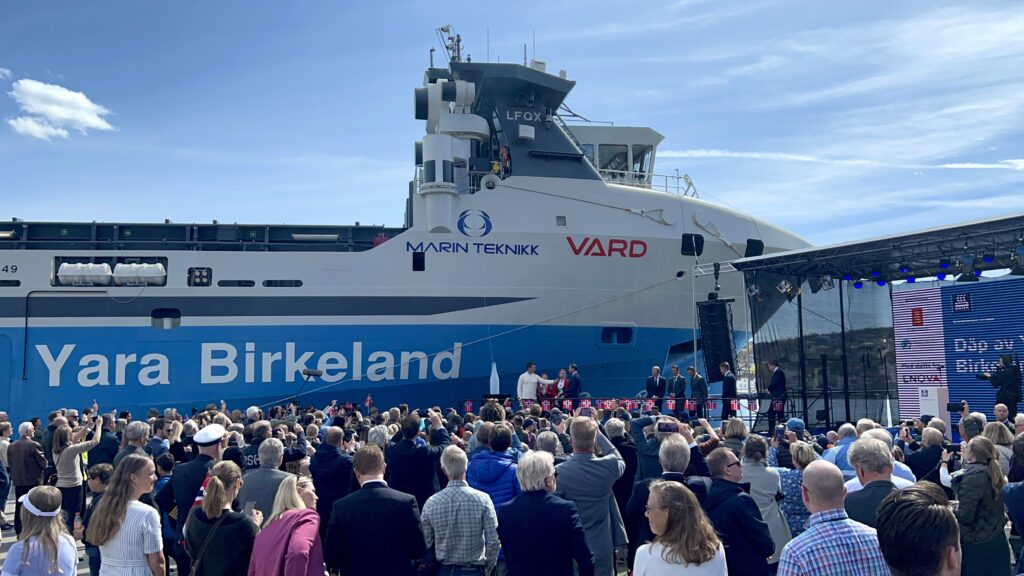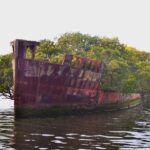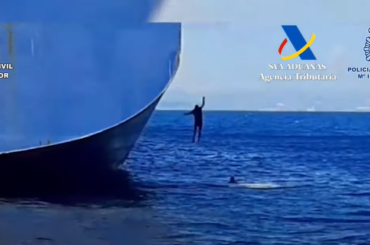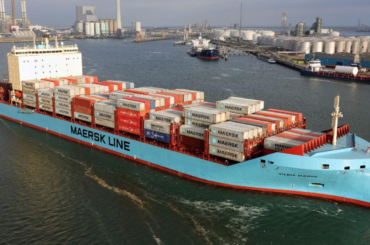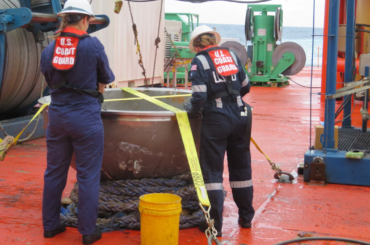The christening of Yara Birkeland, the world’s first electric, autonomous container vessel, was celebrated today by 500 young local schoolchildren and Norway’s Crown Prince, Haakon Magnus.
In a unique twist on maritime custom, the emission-free ship was christened by not only one but two godmothers. Pernille Gundersrud (12) and Malene Moen Straume (12) took on the honourable task of representing the future. Close to the Yara Porsgrunn factory, the christening took place.

“Fighting climate change and reducing harmful CO2 emissions is the world community’s most important task. Global warming threatens our future,” says Gundersrud.”We are young. We represent the future, as Yara Birkeland does. We are incredibly proud and thankful to be asked to be godmothers for the world’s first fully electric and autonomous container vessel with zero emissions,” says Straume.
“We christen you Yara Birkeland. May you be blessed with good fortune on your mission and may you inspire others in the fight for a better climate,” Before throwing a specially manufactured champagne bottle of ice into the ship’s bow, the two godmothers murmured something.
His Royal Highness, Crown Prince Haakon Magnus of Norway, addressed the youngsters and Yara in his remarks.
“It takes courage to create something new. It requires investment, patience, and the ability to not give up after the first try. Innovation requires trial and error – and trial and error again – until you succeed. Those of you who have worked at Yara for many years have been involved in this several times before throughout the company’s history”, said His Royal Highness at the ceremony in Porsgrunn.

“This is a milestone for Yara,” says Svein Tore Holsether, President and CEO of Yara International.
“Yara took a bold decision in 2017. We wanted to build the world’s first carbon-free container vessel. Today, five years later, we celebrate the outcome of this ambitious decision. Yara Birkeland results from ambition, curiosity, and collaboration where innovation, sustainability and technology come together,” he says.
Yara created the battery-powered ship in partnership with several Norwegian partners. The technology was developed and provided by Kongsberg Maritime. Vard is the one who constructs the ship. A joint venture between the Kongsberg Group and Massterly, which the Wilhelmsen Group owns, will operate Yara Birkeland. Enova, owned by the Norwegian Ministry of Climate and Environment, has made a financial contribution to the development of Yara Birkeland (NOK 133.5 million).
Kristian Birkeland, a famous Norwegian scientist in the early 1900s and one of the founding fathers of what Yara symbolizes today, is honoured with the ship’s name. Birkeland laid the groundwork for Yara by figuring out how to use nitrogen from the air to make fertilizer.
Facts about Yara Birkeland
- Yara Birkeland is the world’s first zero-emission electric and autonomous container ship. The ship will carry fertilizer across the fjord from Yara’s Porsgrunn facility to Brevik port, replacing 40.000 diesel truckloads annually and reducing carbon emissions.
- The ship was created in partnership with several Norwegian companies. The Yara Birkeland technology is developed and delivered by Kongsberg Maritime, which includes sensors and integration needed for remote control and autonomous operations and electric propulsion, battery, and control systems.
- Vard’s shipyard in Brattvg built the vessel. From its monitoring and operations center in Horten, Massterly, a joint venture between the Wilhelmsen and Kongsberg groups, has operational responsibility for Yara Birkeland. Enova, a state-owned company, has invested NOK 133.5 million in the development of Yara Birkeland.
- In 2022, Yara Birkeland will be operational. It will first go through a two-year trial period to become autonomous and approved as an all-electric cargo ship.

